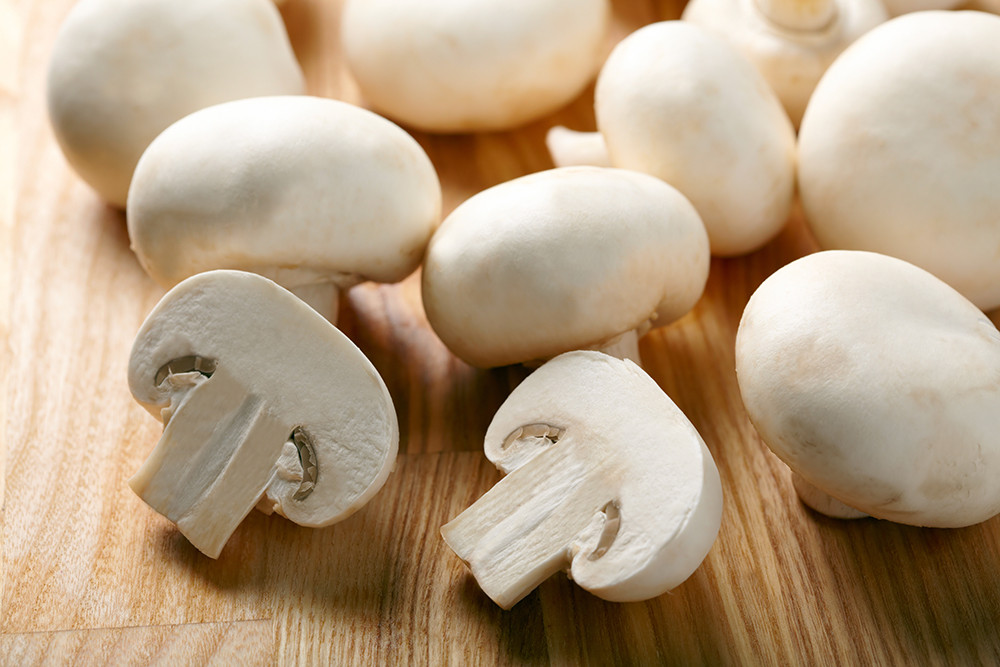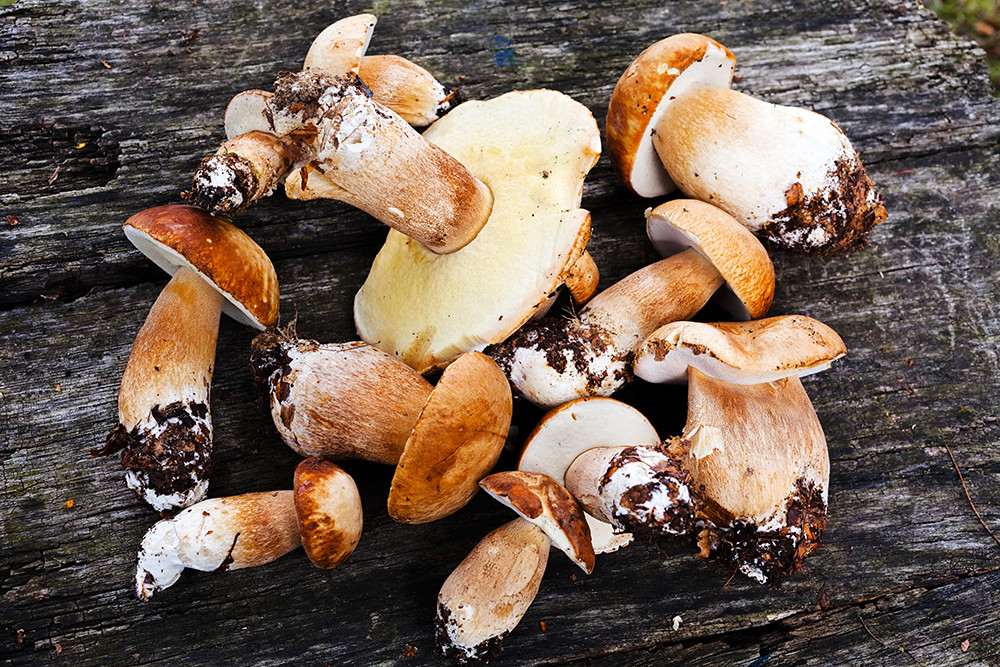If you’ve ever prepared a meal with mushrooms, you might have noticed your feline companion showing unusual interest. Perhaps they’re drawn to the earthy aroma or maybe they’re just curious about what you’re up to. This might lead you to wonder: Can Cats Eat Mushrooms?
The short answer is that while some store-bought mushrooms are technically non-toxic to cats, it’s generally best to avoid feeding them mushrooms altogether. Let’s delve deeper into why mushrooms and cats are not always a good mix and what you need to know to keep your feline friend safe.
Disclaimer: Before making any changes to your cat’s diet, especially introducing human foods, it’s crucial to consult with your veterinarian. Each cat has unique nutritional needs based on their age, health, activity level, and medical history.
Why Cats Might Be Curious About Mushrooms
It might seem odd for a carnivore to be interested in fungi, but some cats are indeed drawn to mushrooms. The reason for this fascination lies in the savory “umami” flavor that mushrooms possess. This umami taste is due to glutamate, an amino acid found in high concentrations in mushrooms. ^1^
Cats have taste receptors that can detect umami, and they seem to enjoy this savory profile. Interestingly, umami is also associated with the amino acids present in meat protein, which is a primary component of a cat’s natural diet. Therefore, a cat’s attraction to mushrooms could be linked to their innate drive to seek out protein and savory flavors.
 Close-up of fresh champignon mushrooms on a wooden table, highlighting their texture and earthy tones.
Close-up of fresh champignon mushrooms on a wooden table, highlighting their texture and earthy tones.
Are Store-Bought Mushrooms Safe for Cats in Small Amounts?
Certain types of mushrooms purchased from grocery stores are considered non-toxic to cats and might be safe for them to sample in very small amounts. However, it’s important to remember that cats are obligate carnivores, meaning their nutritional needs are best met through a meat-based diet. Mushrooms offer very little nutritional value for cats and should not be considered a regular part of their diet. High-quality cat food and treats are formulated to provide all the necessary nutrients they require.
If you’re considering sharing a tiny piece of a cooked mushroom with your cat, it is essential to consult your veterinarian first. If given, the mushroom must be plain, cooked, and without any seasonings, oils, or sauces that could be harmful to cats. Many common cooking ingredients, such as garlic and onions, are toxic to felines.
For any concerns about your cat’s diet or to understand what foods are safe and beneficial for them, your veterinarian is the best resource.
The Significant Danger of Wild Mushrooms for Cats
Wild mushrooms pose a serious threat to cats and should never be given to them under any circumstances. Identifying wild mushrooms is incredibly challenging, even for experienced foragers. Unless you are a professional mycologist, it is impossible to confidently distinguish between safe and deadly varieties.
The North American Mycological Association (NAMA) emphasizes that while cats are not typically drawn to wild mushrooms, certain dangerous species like Amanita muscaria and Amanita pantherina can be attractive to them, particularly in their dried form. ^2^ These mushrooms have a fishy odor, which is likely the reason for feline interest. Ingestion of these types can be fatal.
It’s prudent to regularly inspect your yard, especially during fall when mushrooms are more prevalent, and remove any that you find to minimize the risk to your cat.
While some wild mushrooms are harmless, many others contain potent toxins that can cause severe illness or death in cats. The risks associated with wild mushrooms far outweigh any potential curiosity your cat might have.
 A variety of fresh wild mushrooms collected in a basket, illustrating the diverse shapes, colors, and textures of wild fungi.
A variety of fresh wild mushrooms collected in a basket, illustrating the diverse shapes, colors, and textures of wild fungi.
Recognizing the Signs of Mushroom Poisoning in Cats
If you suspect your cat has ingested a wild mushroom, immediate veterinary attention is crucial. The Animal Poison Control Center (APCC) and the ASPCA highlight several signs of mushroom poisoning in cats that you should watch out for: ^3^
- Gastrointestinal Upset: Vomiting and diarrhea are often the first signs, appearing within hours of ingestion. While mild cases might resolve on their own, severe cases can lead to dehydration and dangerous electrolyte imbalances.
- Muscarinic Effects: Certain mushroom toxins affect the parasympathetic nervous system, leading to excessive drooling and a slowed heart rate. Gastrointestinal issues may also be present alongside these symptoms.
- Neurological Symptoms: Neurological effects can manifest as incoordination, tremors, increased sensitivity to touch or sound, agitation, and lethargy. Vomiting and diarrhea can also occur in conjunction with neurological signs.
- Liver Toxicity: Liver damage is a particularly grave concern associated with some of the most poisonous mushrooms, like the death cap. Symptoms may be delayed for up to 24 hours and can include gastrointestinal issues, lethargy, loss of appetite, and jaundice (yellowing of the skin and gums). Untreated liver toxicity can rapidly progress to liver failure and death.
- Kidney Toxicity: While less common in North America, some mushroom types can cause kidney damage. Initial signs include nausea, vomiting, and diarrhea. Kidney damage can take 12 hours to a week to develop and may be irreversible.
The specific symptoms of mushroom poisoning depend on the type of mushroom consumed. If possible, take a photograph of the mushroom and collect a small sample (handle with gloves or a bag) for identification by your veterinarian or a mycologist. Dispose of the remaining mushrooms carefully, ensuring you don’t touch them directly.
What to Do If You Suspect Mushroom Poisoning
If you have any reason to believe your cat has eaten a wild mushroom, contact your veterinarian or an emergency animal hospital immediately. Time is of the essence in treating mushroom poisoning. Do not wait for symptoms to appear.
If you can safely collect a sample of the mushroom or take a clear picture, bring this information with you to the vet. This can significantly aid in diagnosis and treatment.
Prevention: Keeping Your Cat Safe from Mushrooms
The best way to protect your cat from mushroom poisoning is to prevent exposure in the first place.
- Avoid feeding your cat any type of mushroom, wild or store-bought, unless specifically advised by your veterinarian.
- Regularly inspect your yard and remove any mushrooms you find, especially after rain or in damp conditions.
- Be vigilant during walks or outdoor excursions to prevent your cat from encountering and potentially eating wild mushrooms.
Wrapping Up: Mushrooms and Cats Don’t Mix
While some cats might be intrigued by the savory taste of mushrooms, it is ultimately safest to keep these fungi away from your feline companion. Store-bought mushrooms offer no nutritional benefit and pose a potential risk if not prepared plain and without harmful seasonings. Wild mushrooms are a significant danger and can be deadly.
Stick to a diet of high-quality cat food and treats designed specifically for their nutritional needs. If you suspect your cat has eaten a wild mushroom, seek immediate veterinary care. When it comes to mushrooms and cats, caution is always the best approach.
Sources
[^1^]: NPR: Mystery Solved: Why The Cat Craves Mushrooms (And People Do, Too)
[^2^]: North American Mycological Association (NAMA): Mushroom Poisonings in Dogs and Cats
[^3^]: ASPCA: Not-So-Magic Mushrooms: Tips to Keep Your Pets Safe
